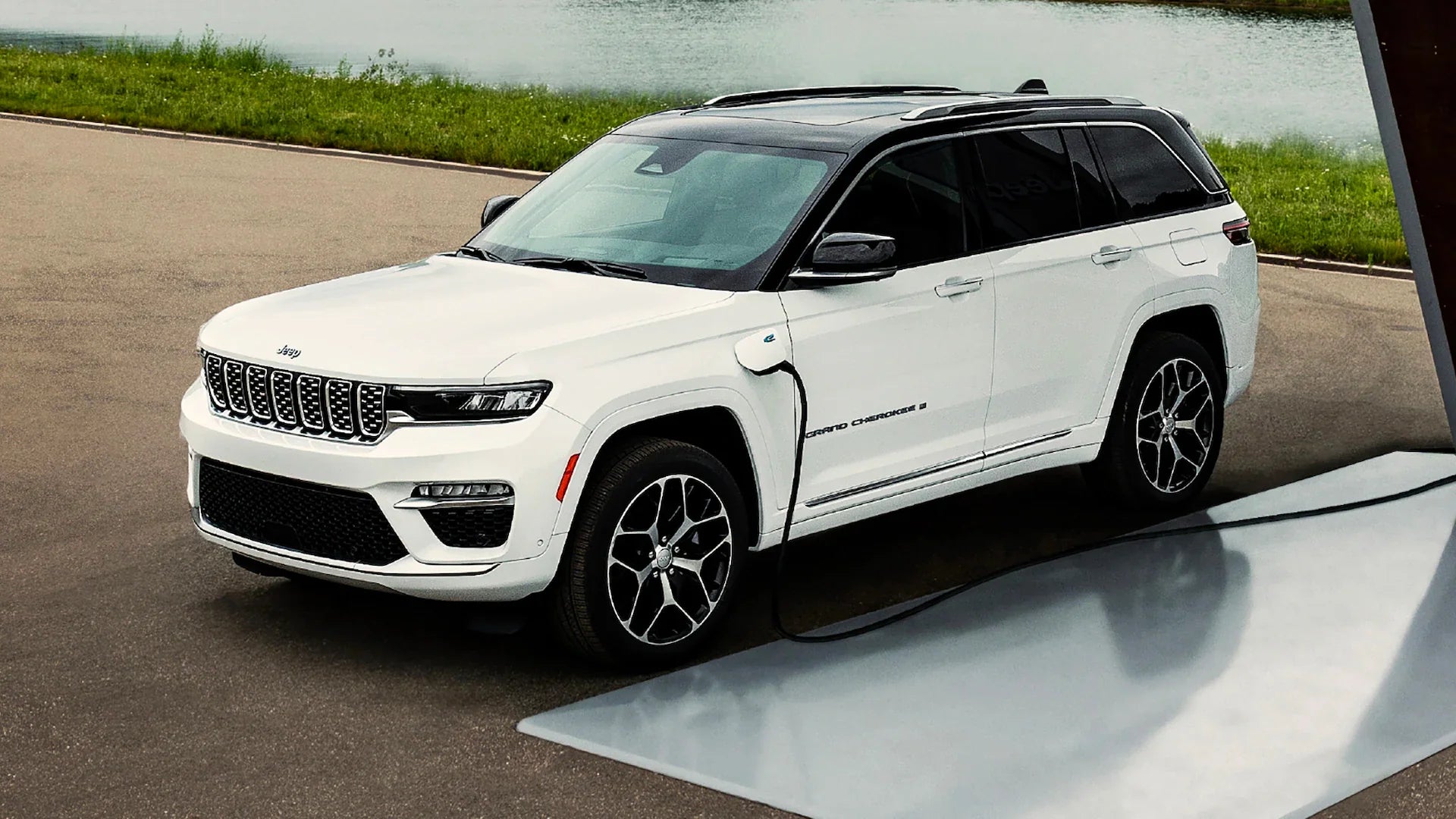Here's How Jeep's Electric Future Is Shaping Up

Jeep, the iconic American brand known for its rugged and capable off-road vehicles, is undergoing a major transformation to embrace the electrification trend. The company has announced a comprehensive plan to introduce four all-electric SUVs by 2025, as well as electrify its entire lineup by 2030. Here's how Jeep's electric future is shaping up and what it means for its loyal fans and the environment.
Jeep's Electric SUV Lineup
Jeep has already launched its first plug-in hybrid electric vehicles (PHEVs) in the form of the Wrangler 4xe and the Grand Cherokee 4xe, which combine a turbocharged 2.0-liter engine with two electric motors and a battery pack. The Wrangler 4xe offers up to 21 miles of electric-only range and 49 MPGe, while the Grand Cherokee 4xe boasts up to 25 miles of electric-only range and 56 MPGe. Both models deliver impressive performance and off-road capability, as well as the option to choose between different driving modes: Hybrid, Electric, and eSave.

However, Jeep is not stopping at PHEVs. The company has revealed its plan to launch four all-electric SUVs by 2025, which will be based on the Wrangler, the Wagoneer, the Avenger, and the Recon. These models will be part of Jeep's 4xe sub-brand, which stands for "the new 4x4" and represents the company's vision of electrified adventure. Related Articles: 2024 Jeep Recon: Everything We Know So Far

The Wrangler-inspired electric SUV will be called the Recon, and it will feature a removable roof and doors, a 650-horsepower electric motor, and a 70-kWh battery pack that will provide up to 250 miles of range. The Recon will also have a six-speed manual transmission, a three-inch suspension lift, and 40-inch tires, making it a formidable off-roader.
The Wagoneer-inspired electric SUV will be called the Wagoneer S, and it will offer a more luxurious and sophisticated take on the electric SUV segment. The Wagoneer S will have a sleek and elegant design, a spacious and premium interior, and a powerful electric drivetrain that will deliver up to 400 miles of range. The Wagoneer S will also have advanced technology and safety features, such as a digital cockpit, a head-up display, and a Level 3 autonomous driving system.
The Avenger is Jeep's first fully electric SUV, and it is already available in Europe. The Avenger is a compact and stylish SUV that competes with the likes of the Tesla Model Y and the Hyundai Kona Electric. The Avenger has a 400-volt electric motor that produces 285 horsepower and 273 pound-feet of torque, and a 55-kWh battery pack that enables up to 248 miles of range. The Avenger also has a fast-charging capability that can add 24 miles of range in just five minutes. The Avenger has won several awards, including the European Car of the Year 2023, and has received over 40,000 orders since its launch.
The fourth electric SUV that Jeep plans to launch by 2025 is still a mystery, but some speculate that it could be based on the Magneto concept that Jeep unveiled earlier this year. The Magneto is a Wrangler-based electric concept that features an axial flux electric motor that delivers 285 horsepower and 273 pound-feet of torque, and four lithium-ion battery packs that provide a total of 70 kWh of energy. The Magneto also has a six-speed manual transmission, a two-inch lift kit, and 35-inch tires, making it a fun and capable electric off-roader.
Jeep's Electrification Strategy
Jeep's electric SUV lineup is part of the company's broader electrification strategy, which aims to make Jeep the leading electrified SUV brand in the world. Jeep's parent company, Stellantis, has announced that it will invest more than $30 billion in electrification and software development by 2025, and that it will launch 28 new all-electric vehicles across its 14 brands by 2024. Stellantis has also committed to achieving carbon net zero by 2038, and to reducing its carbon emissions by 50% by 2030 compared to 2021.
As part of this strategy, Jeep has pledged to offer some form of electrification for every vehicle in its lineup by 2025, and to achieve 100% of its passenger car sales in Europe and 50% of its passenger car and light-duty truck sales in the U.S. to be all-electric by 2030. Jeep has also installed solar-powered charging stations near key off-road trails across the country, to enable its electric SUV owners to enjoy zero-emission freedom in nature.
Jeep's electric future is shaping up to be an exciting and ambitious one, as the company seeks to combine its legendary 4x4 capability with modern electric technologies. By offering a range of electric SUVs that cater to different needs and preferences, Jeep hopes to attract new customers and retain its loyal fans, while also contributing to a more sustainable future for the planet.
